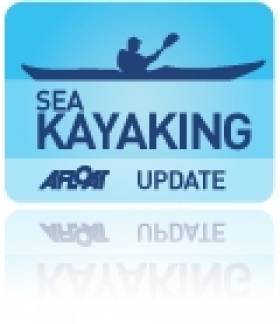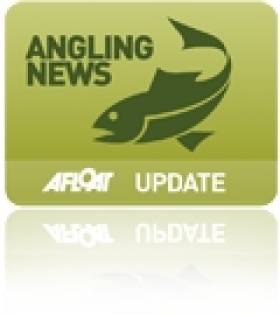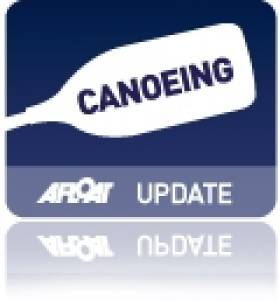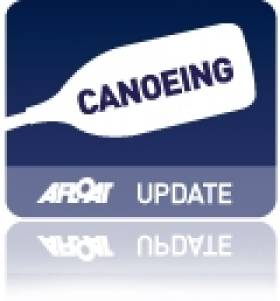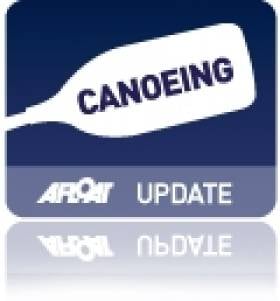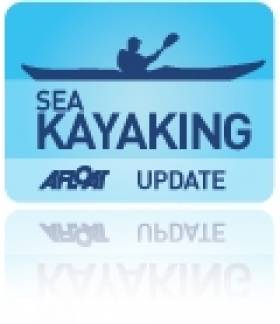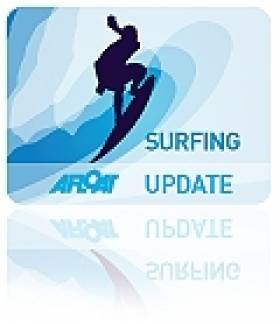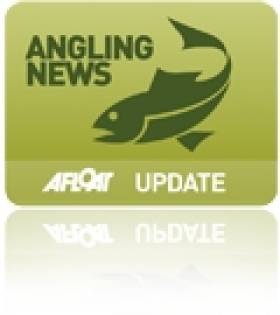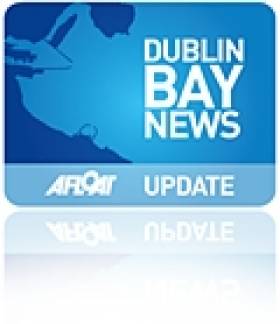Displaying items by tag: Charity
Irish Adventurers First To Take On The Yangtze By Kayak
#Kayaking - Last April Afloat.ie highlighted two intrepid Irish adventurers on the first leg of a gruelling 16,000-mile charity trek across Asia - by foot, bike, raft and kayak - along the Silk Roads to Shanghai.
But as the New Year began last week - just over eight months later - the duo of Maghnus Collins and David Burns were just 450km away from completed their epic journey, as The Score reports.
Limerick man Collins told the sports website that he and Derry native Burns were at Wuhu, a city on the Yangtze upstream of Shanghai, and from where the pair will tackle the rest of the route along the river by kayak.
It's surely incredible enough that Collins and Burns ran the equivalent of 25 marathons in 27 days as they crossed Tibet to the source of Asia's longest river - but being the first ever kayakers to navigate the "incredibly dangerous" Yangtze from source to sea is almost beyond belief.
Little wonder, then, that they've so far raised €30,000 for Irish-based charity Self Help Africa, and will surely reach their target of €50,000 by the time they expect to reach the finish line this day next week.
The Score has more on the story HERE - and listen to an interview with Collins and Burns on Today FM's The Last Word with Matt Cooper (at the 41-minute mark of part 2).
NI Community Rallies to Angling Charity's Aid
#Angling - BBC News reports that the Northern Ireland angling charity that lost equipment after their storage facility was burgled has received an "outpouring of generosity" from the local community.
As previously reported on Afloat.ie, the storage container used by Angling First outside Dromore in Co Down was found forced open last Wednesday.
Sixty fishing rods and other equipment worth more than £600 (€745) were taken in the theft.
But the Northern Ireland community has since rallied to the charity's aid - with Sport Minister Carál Ní Chuilín presenting a number of fishing rods seized in raids on illegal fishing, and the David Prentice car dealership in Portadown donating funds to cover the cost of replacing the stolen gear.
"I'm now standing here today and I'm able to continue thanks to people like David Prentice and the minister intervening," said Angling First's Mark McGivern.
Donegal Man Runs, Cycles, Swims and Kayaks Across Ireland for Charity
#KAYAKING - A fitness instructor from Donegal recently raised funds for a Parkinson's charity by crossing the north of Ireland from east to west with an extraordinary combination of running, cycling, swimming and kayaking.
As the Donegal Democrat reports, James McIntyre spent a weekend traversing the island of Ireland from Newcastle in Co down to Creevy in Co Donegal.
His route that included a mountain run across Sliabh Donard and the Mournes and a cycling portion from Annalong to Enniskillen, before he took to the water for a 35km kayak run along the length of Lower Lough Erne to Beleek and a swim across Assaroe Lake.
McIntyre covered 201km altogether in his epic challenge to raise funds for research into Parkinson's disease, an illness that affected both his and his partner's grandfathers.
The 37-year-old surf lifesaver is no stranger to such efforts, after completing an open sea swim of Donegal Bay last year, also for charity.
The Donegal Democrat has much more on the story HERE.
Canoe Challengers Promise 'Irish Deliverance' for Charity
#CANOEING - A team of hardy souls from Leamington Spa in England will attempt to paddle their way across the island of Ireland for charity from next weekend.
The Leamington Courier reports on the 13-strong 'Irish Deliverance' team, which will set out on five Canadian canoes from the Giant's Causeway on the Antrim coast next Friday 24 August.
They will be following a route through Lough Neagh and Lough Erne and across the border along the River Shannon all the way to Limerick, which they hope to reach by Sunday 2 September.
Team leader Jon Devaney says the group has been practising for months for the 372-mile challenge, aiming to raise money for the Warwickshire and Northamptonshire Air Ambulance.
And it's not the first time he's embarked on such an epic voyage - with Devaney, his brother David and friends completing the 10,000-mile Mongol Rally last year, and raising more than £7,000 (€8,900) for the air ambulance service in the process.
The Leamington Courier has more on the story HERE.
UK Laser Sailors in £50K Irish Sea Crossing Challenge
#LASER - A pair of British sailors are set to embark on an intrepid crossing of the Irish Sea using just two single-handed Laser dingies.
David Summerville and Steve Cockerill had originally planned to make the crossing in September last year, but those plans were scuppered by 50-knot gale force winds and a 12-foot tidal swell, according to Incentive Travel.
But the duo is now planning to try again, with the backing of the Ramada Plaza Southport.
“David and Steve will be covering 115 nautical miles during the challenge," said Ramada Plaza general manager Enda Rylands. "They will set off from my own home town of Dublin and finish in Southport, aiming to raise £50,000 for mental health charity Mind and the John Merricks Sailing Trust."
Summerville, a 53-year-old grandfather of two who runs a boat repair business, said the date of the challenge would again depend on weather and tidal conditions, and that the pair is ready to depart any time from mid-April to mid-September.
It's not the first time that an Irish Sea crossing has been done in a Laser as Tiffany Brien achieved the feat in 2010, sailing single-handedly the 30 miles from Portpatrick in Scotland to Belfast Lough.
But Summerville and Cockerill's ambitious undertaking, at more than three times that distance, would surely get them a place in the record books - provided the weather goes their way!
Father-Son Duo in Charity Paddle from Dublin to Donegal
#KAYAKING - A father-and-son duo from north Co Dublin will shortly embark on an epic kayak paddle from Dublin to Donegal, the Fingal Independent reports.
Dermot Higgins and his son Fionn, from Rush, will attempt to kayak from Dublin Port to the Atlantic Ocean at Ballyshannon - a distance of some 330km - by way of the Royal Canal, the River Shannon and Lough Erne.
The Higgins' - who believe they are the first to attempt such a feat - will be completely self-sufficuent for the duration of the challenge, which is hoped to raised funds for the Rush Open Organisation for Transition Status (ROOTS), a charity that intends to help communities reduce their carbon footprint and face up to environmental challenges by encouraging sustainability.
The Fingal Independent has more on the story HERE.
Duo Set for Sea Kayaking Challenge off Western Scotland
#SEA KAYAKING - Brit duo Andy Pearson and Paul A'bear will embark on a 500-mile sea kayaking voyage along Scotland's west coast this summer in aid of charity.
Canoe & Kayak UK reports that the pair will set out from the Solway Firth near the Scottish border at the end of June on the expedition that will take them through the Irish Sea to the Atlantic Ocean.
The adventure will see them paddle through "wild, stormy seas" and "some of the strongest tidal currents in the world".
Pearson and A'bear, who have been friends since primary school, hope to raise at least £1,000 for Cancer Research UK.
For more details on their adventure visit www.westcoastchallenge2012.co.uk.
Al Mennie's Epic Charity Paddle from Giant's Causeway
#SURFING - Northern Irish surf pro Al Mennie will be taking on a different challenge later this month, when he sets out to paddle a surfboard from the Giant's Causeway to Scotland in the name of charity.
"It will be the northernmost crossing of its type in the world," says Mennie of the 25-mile route from Antrim to the Scottish island of Islay.
"I will have to deal with freezing cold temperatures, large open ocean swell, potentially high winds and the deadly currents around a well known navigational hazard of a North Atlantic island."
Mennie will be on his own except for a support boat carrying food and water. He will be wearing a 6mm wetsuit and crossing the most dangerous stretch of water around the Irish coastline, "known for its extremely deadly currents as the Irish Sea tides drain between Rathlin Island and Northern Ireland".
The NI surfer is embarking on the challenge in aid of Northern Ireland Chest Heart and Stroke, which is a charity close to his own heart.
"My dad died suddenly of a heart attack aged 50 and I know lots of people who have also lost loved ones to heart problems too," he says, "so I really want to help make a difference by raising money for this charity."
For more details or to make a donation, visit the charity page at Al Mennie's website HERE.
'Eagle-Eyed' Angler Fishes Wedding Ring from the Lee
#ANGLING - An "eagle-eyed" angler in Co Cork received a free eye test after his remarkable find of a wedding ring in the water last week.
Seventy-five-year-old Pat O'Flaherty spotted the €400 gold band - complete with its red box - in the River Lee, garnering him a front-page story in the Irish Examiner and a free eye test from Specsavers.
They put me in the chair and did all the tests and told me I have 20:20 vision," he said.
The owner of the ring has yet to be traced, despite much speculation as to how it ended up in the Lee in the first place. If unclaimed, O'Flaherty intends to auction the ring for charity.
In other angling news, West Cork's Courtmacsherry Angling Centre hosted members of the Bradford Sea Angling Club in the UK last weekend.
Poor weather meant that the group was restricted to inshore fishing on the Friday and Saturday, but the Sunday saw a catch of ling up to 23lbs as well as pollack, coalfish, cod, haddock and whiting.
Harbour2Harbour Dublin Bay Walk Coming Soon
#DUBLIN BAY NEWS - The annual St Patrick's Day Harbour2Harbour Walk in aid of mental health charity Aware is just a few weeks away.
The 16.2 mile walk around Dublin Bay begins at 10.30am on Saturday 17 March, taking around five hours to complete, and it's your choice whether you begin at Howth Harbour and walk to Dun Laoghaire Harbour or vice versa.
Organisers describe the event as "a great day out for family, friends and individuals, all of whom get a great sense of achievement and a great view of Dublin Bay."
Of course the main aim of the day is to raise funds for Aware, and once registered to take part you will receive a fundraising pack containing letters, information, maps and sponsorship cards. You can also set up your own fundraising page on MyCharity.ie.
The registration fee is €15 per individual or €25 for a group of 2 (children under 16 are free). Advance online registration is now available at the Aware website HERE. Late registration will be available on the morning of the walk itself.
Volunteers are also required to help with late registration on the morning of the walk and act as stewards at various points along the route. If you can help please call 01 661 7211 or e-mail [email protected].
More information about the day can be found at Aware's Harbour2Harbour webpage HERE.


























